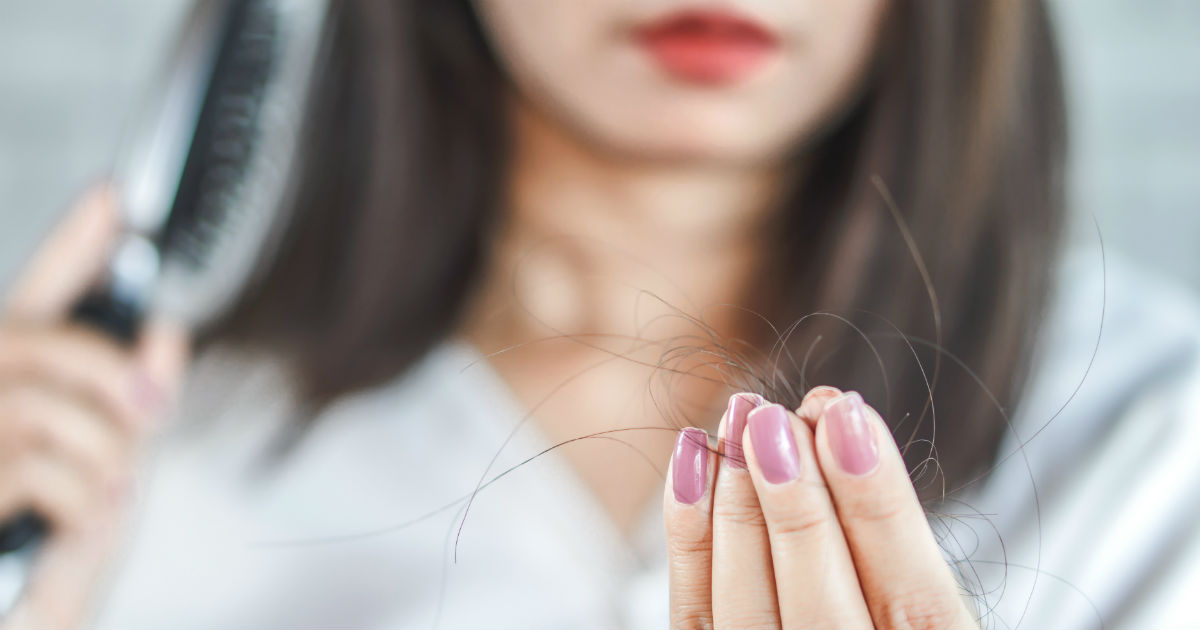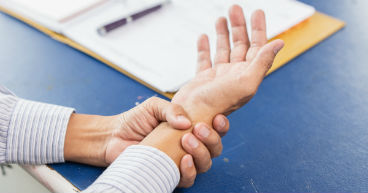
Some of the most difficult side effects of cancer treatments may not cause physical pain. They may not cause fatigue or digestive issues. And they may only be temporary. But for some cancer patients, hair loss may be one of the most distressing side effects of cancer treatment.
Hair loss, or alopecia, may make you feel vulnerable, self-conscious and exposed as a “cancer patient.” Hair loss is also a tangible sign that your life has changed, which may trigger feelings of anger and depression. And you may be faced with questions from others that you aren’t prepared to deal with yet.
For some, the threat of hair loss may intensify the lack of control you may feel after a cancer diagnosis. But it also presents an opportunity to emotionally prepare for losing your hair and take steps to deal with it before it happens. It helps to understand why hair falls out and how to handle it if it occurs.
What causes hair loss in cancer patients?
Chemotherapy targets cancer cells that divide rapidly. But some healthy cells in the body also divide rapidly, like those lining the mouth and stomach, and in the hair follicles. When cancer treatments, especially certain chemotherapy drugs, damage the healthy, fast-growing cells responsible for hair growth, alopecia may result. Radiation therapy may also cause hair loss in the specific area of the body being treated.
Although hair loss does not always happen right away, it usually begins within two weeks of starting chemotherapy treatment and progresses over the following two months. Hair loss in the area being treated with radiation treatment usually begins up to three weeks after the first treatment. Hair loss may continue throughout treatment and up to a few weeks afterward.
Hair loss may occur on the head and/or elsewhere on the body, including the face (eyelashes and eyebrows), hair on the arms, underarms and legs, and pubic hair.
Who experiences hair loss?
Not every person will lose his or her hair during cancer care. In fact, two patients taking the same medication may experience different hair-loss side effects. One patient may lose hair, while another doesn’t. If alopecia does occur, the extent of hair loss varies widely depending on the type, dosage, frequency and method of treatment, as well as other individual factors.
In some cases, the hair may fall out, but become thin, dull and dry. When hair loss occurs, hair may fall out gradually, quickly, in clumps or entirely. The scalp may also feel tender or itchy beforehand.
Most hair loss is temporary, and hair will grow back after cancer treatment ends. Hair generally grows back within three months after chemotherapy ends and three to six months after radiation ends. Sometimes hair re-growth begins even before therapy is complete. It’s common for hair to grow back a slightly different color and texture at first.
Baldness drug treatments, such as minoxidil, are not proven to be consistently effective to reduce or prevent hair loss caused by cancer treatment. In some cases, cooling caps, approved by the U.S. Food and Drug Administration (FDA) for some patients, may help to protect hair cells from chemotherapy drugs. Cooling caps are designed to work by constricting cells, making it more difficult for the drugs to penetrate, and by reducing cellular activity in the hair follicles, making them a less likely target for chemotherapy drugs.
How to deal with cancer-related hair loss
When you're struggling with cancer, treatments and the challenges that come with a diagnosis, it may be difficult to adjust to hair loss and other changes to your body and appearance. But there are ways to prepare for and deal with hair loss when it occurs. Here are 12 ways to help cope with cancer-related hair loss:
Give yourself time. Losing your hair may be difficult to accept. It may take time to adjust to how you look, then more time to feel good about yourself again. It’s okay to feel upset. At the same time, understand that losing your hair is usually temporary and hair will re-grow after you complete treatment.
Remember you’re still you. Losing your hair and experiencing other physical changes brought on by cancer and its treatment may come as a shock. It may be disorienting to look in the mirror and not recognize yourself. Remember that you’re still the same person on the inside. Try to celebrate who you are and focus on those qualities.
Prepare ahead for hair changes. Before you begin cancer treatment, prepare in advance for changes to your hair. Talk to your doctor about what to expect. Meet with a stylist who is familiar with cancer-related hair loss. Some people choose to wear head coverings, and others don’t. Choose whatever feels most comfortable for you. It also helps to think about how you will respond to reactions from others.
Consider head coverings. If you decide to get a wig, hairpiece or other head coverings (e.g., turbans, caps, scarves, hats, head wraps), do so before hair loss occurs. If you get a wig, find a specialty shop that matches your natural hair color and texture and get it styled ahead of time. Some insurance plans or assistance programs may help to cover the expense.
Cut your hair short before treatment. Before cancer treatment begins, consider getting a short hairstyle, especially if you have long hair. When hair begins to fall out, it may not be as startling or distressing if your hair is already short. Cutting your hair may also help you feel like you’re taking control. Some people shave their heads once hair begins to fall out to prevent scalp irritation or itchiness.
Be gentle on your hair. Use a soft bristle hairbrush or wide-tooth comb and a mild, gentle shampoo (but limit washing). Take special care of the scalp, which may get dry and itchy. Gently pat hair dry with a soft towel. Limit the use of hair clips, barrettes, elastic bands and pins that pull on your hair. As new hair grows in, it may be brittle and delicate and will need special care as well.
Avoid irritants. Heat and chemicals may cause hair to fall out. Avoid coloring, perms and/or relaxing the hair. Also, avoid using electric rollers, a hair dryer, flat iron or curling iron. Stay away from chemical products with alcohol, menthol, etc., which can dry out your hair and irritate your scalp. Use a mild shampoo.
Protect your head. Wear a hair net at night, or sleep on a satin pillowcase, to keep hair from coming out in clumps. When out in the sun, use sunscreen to protect your scalp, as sunburn can cause more itchiness, flakiness and dry skin. In cold weather, wear a hat or scarf outdoors to protect your head.
Emphasize your assets. Experiment with ways to enhance your appearance so you can feel good about yourself. Get new makeup and clothes to accentuate your other features. Take care of your skin and nails. If your eyebrows and eyelashes start to fall out, choose eyebrow pencils and eyeliners that are the same color as your natural color or a shade lighter. Keep up with routine hygiene activities.
Pamper yourself. Take time to do something pleasurable to take your mind off your diagnosis. Watch a movie, read, take a walk, listen to music, get a manicure, pedicure, facial or massage. Try behavioral health strategies, such as relaxation techniques, deep breathing and meditation.
Maintain a healthy lifestyle. Following a healthy diet, staying hydrated and exercising regularly are important for looking and feeling better about yourself. Talk with your doctor about making healthy lifestyle choices. A dietitian may help develop a nutritious meal plan, and a rehabilitation therapist may help develop a personalized exercise plan for you.
Build a support system. Share the challenges of hair loss with friends and family. Also, a cancer support group is a great way to meet other people dealing with hair loss. In this setting, you can get ideas and advice about how others coped with changes in their appearance. You may also find it helpful to meet with a psychologist or counselor.
Learn what you should know and what you should ask about breast cancer.



